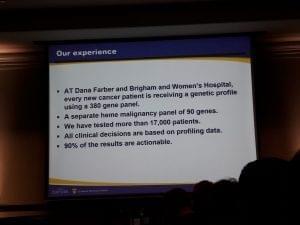The Hyve, this time represented by Julia Kurps and Irina Pulyakhina, recently visited the IMI stakeholder meeting, which took place on 28-29 September in Brussels, Belgium. This forum organized by IMI was targeting various audiences and had the highlighting of the new calls for project proposals (IMI2 Call 10) as its main goal.

The meeting started from a plenary session by the IMI Executive Director Pierre Meulien, who talked about the first launch of IMI projects, shared his views on the challenges of public-private projects and the difficulty of creating or adjusting regulations for data share across different countries within Europe. However, he also reminded the audience of a number of positive achievements and outcomes of IMI projects, e.g., asthma project, in which the taxonomy of asthma has been redefined, having an positive impact to the whole field of the disease. Another raised topic was the scale on which IMI operates — which is ~ 5 bln euro collectively — which opens opportunities to operate on a level impossible with less investment and opening new horizons in health care and medicines.
One of the leitmotifs throughout the whole meeting was personalized health, our achievements and remaining challenges. It was great to see how certain hospitals in different countries are making a great step forward in personalized health — e.g., Dana Farber Cancer Institute, that The Hyve extensively collaborates with — has a written rule that every new cancer patient admitted to the hospital undergoes an extensive screening with a vast cancer gene panel, which makes it easier to guide oncologists across the sub-types of cancer and decide on a better treatment based on the individual genetic landscape, which makes up to 90% of cases actionable.

The first day also covered the new calls for project proposal, and the second day split into multiple sections (“Advanced therapies”, “Preparedness for emerging diseases", “Digital health" and “Oncology”), which focused on different research areas and IMI expertise in more detail.
The “Oncology” track discussed personalized health and the requirement of more innovative technologies to be applied, e.g., not only mutation detection for cancer patients, but also transcriptome analysis, proteome assessment and building metabolic networks on high resolution.
The central question of the “Digital Health" track was how to improve health and quality of life for patients by leveraging recent technological developments such as exponentially increasing computing power, social media utilization, wearable devices and smartphone technology. Two IMI projects that already address those developments, WEB-RADR and the RADAR-CNS project, in which The Hyve actively contributes to the technical platform development, were presented. During the following stakeholder panel discussions, regulatory organizations, doctors, carers and patients described their vision of the Digital Health roadmap and identified major future challenges. Here, it became clear that the implementation of the FAIR guidelines for data management and the standardization of real-world observational health data exhibit high priorities on the Digital Health agenda.
We enjoyed the meeting and found it very motivating and inspiring. And of course we are very glad to be part of the big change that is being made within the IMI projects, as we are involved in IMI EMIF and RADAR CNS. And we will definitely try to make even more change by participating in future IMI consortia! If you are looking to partner with The Hyve for e.g. IMI or Horizon 2020 projects, please contact us.


